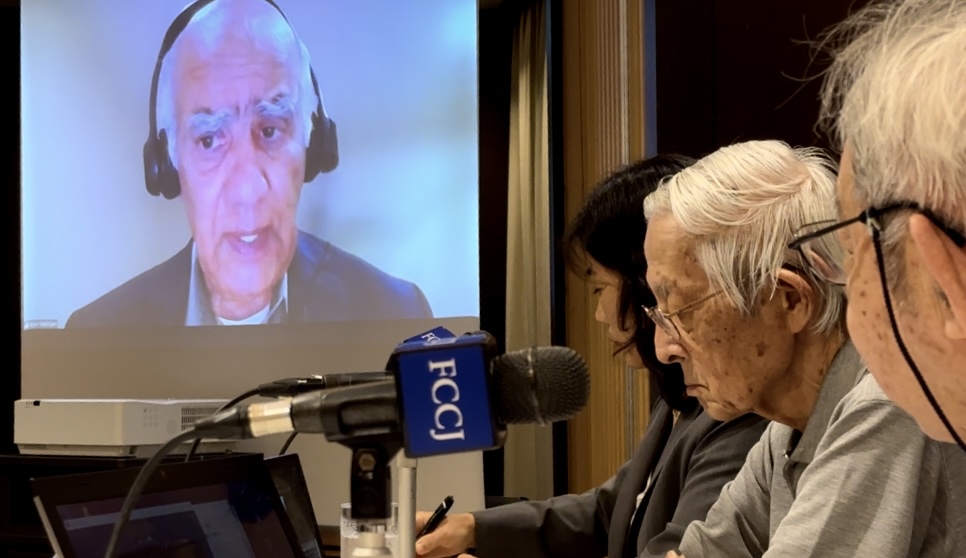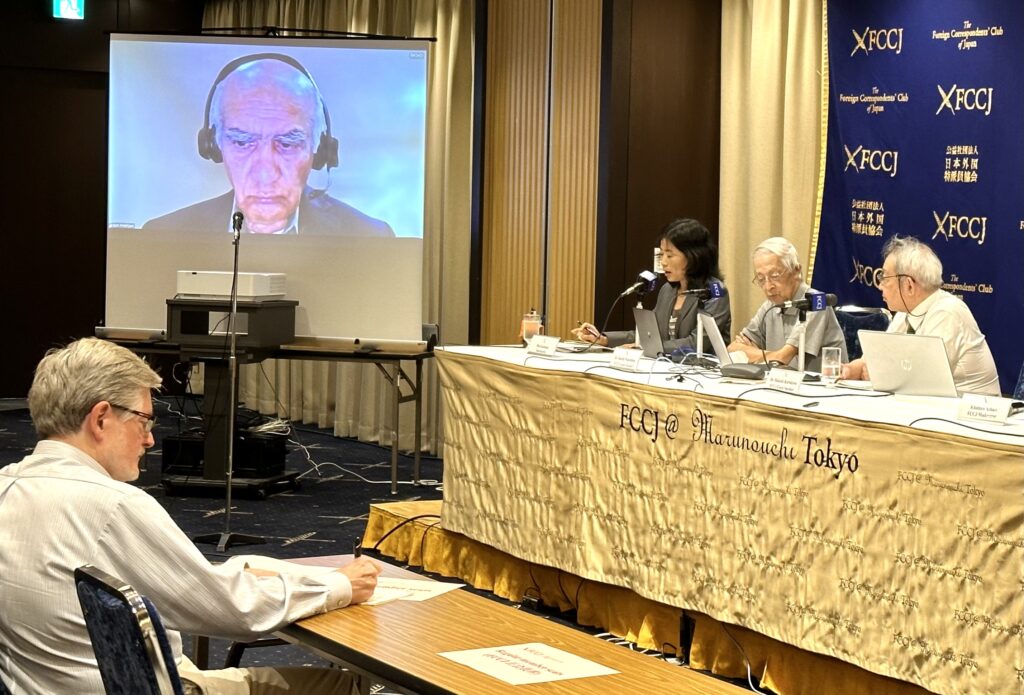



TOKYO: Japan has started dumping contaminated water into the Pacific Ocean from the wrecked Fukushima Daiichi nuclear power plant, but the debate goes on as to whether this was a good decision or the right decision.
Three speakers at the Foreign Correspondents’ Club of Japan on Monday were clear that the Japanese government’s decision to pour a million tons of irradiated water into the sea was the wrong decision and they were critical of the International Atomic Energy Agency (IAEA) who they accuse of being complicit in the decision.
Arjun Makhijani, President of Institute for Energy and Environmental Research, Shinichi Kurokawa, Professor Emeritus at the High Energy Accelerator Research Organization, and Junichi Nukushina of the Civil Forum on Nuclear Radiation Damages of Japan were all highly critical of the Japanese government’s decision.
They said that the dumping plan is not in accord with the IAEA’s fundamental safety principles and guidelines and accuse the nuclear power organization of abandoning the interests of the Pacific region.
“The oceans are under siege from so many directions,” Makhijani said. “The IAEA’s safety principle No. 4 requires that any activity that is going to cause harm must yield an overall benefit. The harm is definitely not zero and there is no benefit, so the harm will outweigh the benefit.”
The speakers said they could not understand why the Japanese government refused to take the “best” alternative measure of using the “treated” water to make concrete that can be used without harming people or nature.
“They have dismissed the option in bad faith and they have not given it the consideration it deserves because they have been determined that dumping was OK even before the panel to review the problem was appointed,” Makhijani said. “The Japanese government did not consider the concrete option in good faith.”
Makhijani pointed out that the IAEA lacked the moral authority to make a judgement on such issues as it was set up to promote nuclear power, not regulate it.
“If it is funded for promoting nuclear activities, there is, I think, a real problem,” he said. “The IAEA is not strictly a regulatory body. We have the same problem in the United States with the Atomic Energy Commission, which was regulating and promoting. And that was found to be a pretty bad idea. There were cover-ups, there were safety scandals. The IAEA is charged by the Charter with promoting nuclear energy. The IAEA is not neutral about nuclear power and I think that is a huge issue. I think the IAEA has abandoned the interests of the Pacific region countries in favor of the government of Japan.”
They also stated that “treated water” – the phrase used by the Japanese government – was a misnomer and it should be referred to as “radioactive contaminated water.”
“We should use the correct words,” Kurokawa said. “The Japanese Government and the Japanese media use ‘treated water. It is not treated water; it is radioactive polluted water. It is very important for us to use the correct words.”
“Dumping contaminated water into the ocean is a grave issue whereby Japan will turn into a nuclear offender state from a nuclear victim state,” Nukushina said. “We have reached out to other citizens groups and a total of 158 organizations have jointly called on Prime Minister KISHIDA [Fumio] to stop the discharge into the ocean. It’s not justified and justification is the first of the three principles of protection set forth by the International Commission on Radiological Protection.”
Makhijani signed off with a withering condemnation of the Japanese government and the IAEA: ‘The IAEA has basically abandoned some of its own key principles and guidance in favor of the government of Japan and has abandoned the interests ofthe countries of the Pacific region. The rejection of the concrete option is a disservice to the fishing communities in Japan and tothe Pacific region.”
“Non-Japanese members of the IAEA, I think, should hold the IAEA to account for abandoning their interests and its own requirements. Japan’s unilateral decision is perhaps the most serious problem in this whole affair, because it opens the door to any country doing anything to the oceans in terms of radioactivity and justifying it, and asking the IAEA for their imprimatur.”